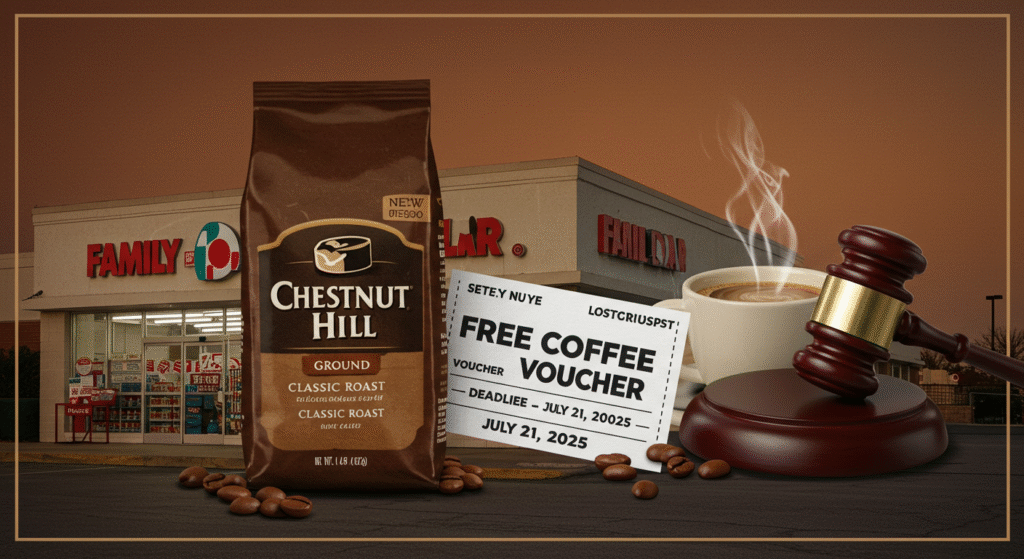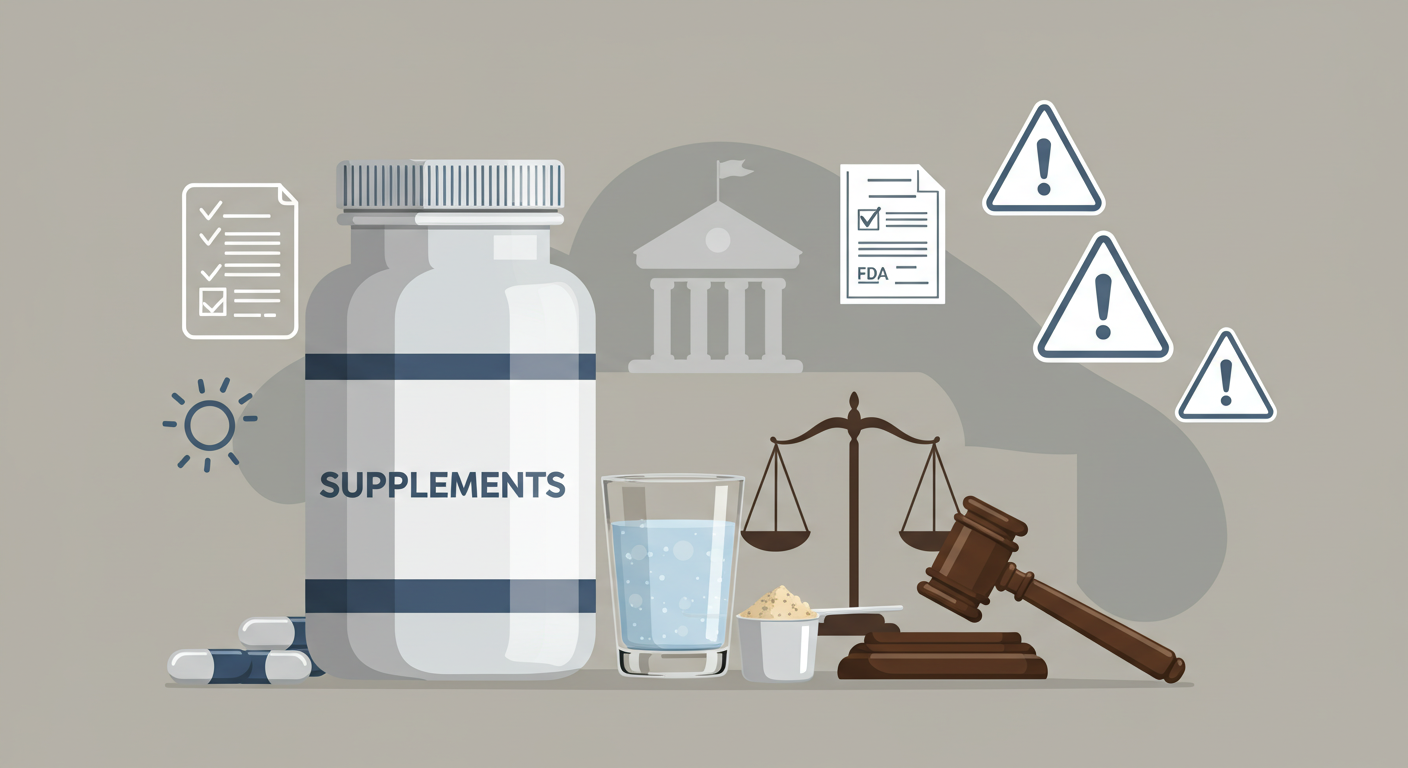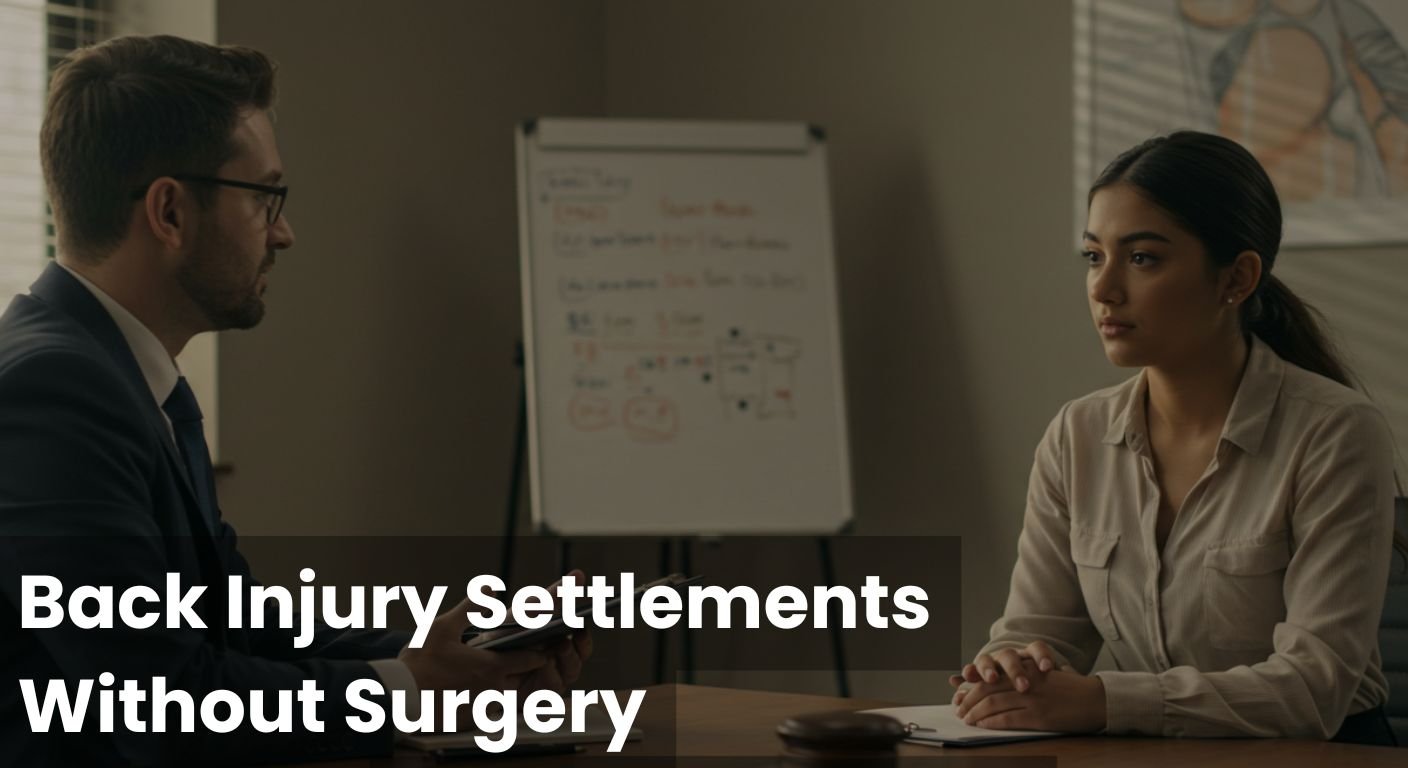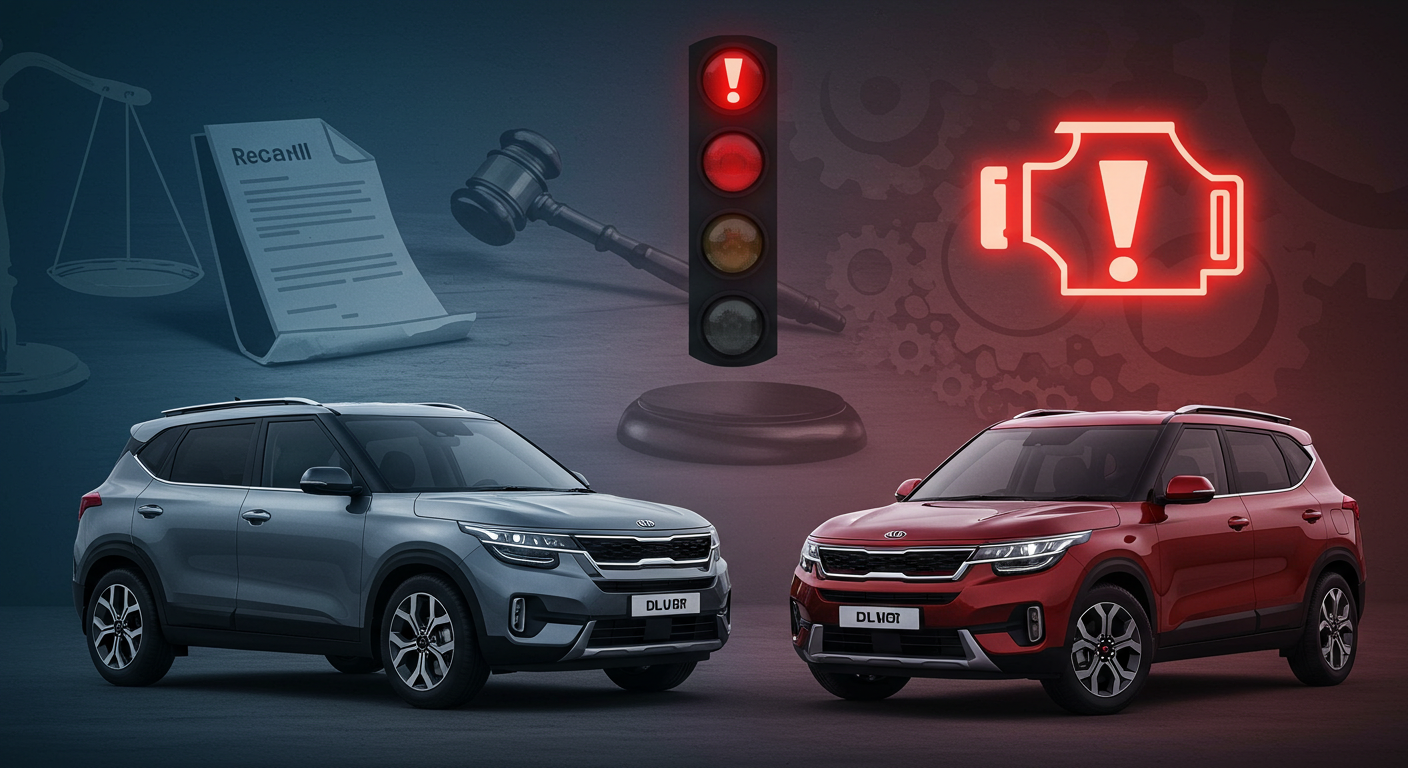What Was This Settlement About?
Did you buy Chestnut Hill ground coffee at Family Dollar? Did you think it would make more cups than it did? Many people felt the same. That led to the Family Dollar ground coffee lawsuit settlement. It was for people who bought Chestnut Hill ground coffee at Family Dollar stores.
The lawsuit said the coffee bags claimed to make more cups than they really could. Family Dollar didn’t admit they did anything wrong, but they agreed to give free vouchers to fix things. If you bought their coffee between January 1, 2019, and April 15, 2025, you could get a free 9.6-ounce bag of Chestnut Hill ground coffee. You didn’t need a receipt!
The deadline to claim your voucher was July 21, 2025. This article uses very simple words to explain everything. You’ll learn who could claim, how to claim, and what happened next. As someone who has written about many settlements, I know it’s important to understand the facts clearly.
The settlement was part of a court case called Williams v. Family Dollar Stores, Inc. in Alabama. The court gave it a first okay on April 15, 2025. A final hearing happened on July 21, 2025. After approval, vouchers were sent out.
Why did this matter? Coffee is important to many people. When a label lies, it breaks trust. This settlement made companies be honest. It also gave back to customers who were misled. Let’s look at the details.
Why Did People Sue Family Dollar?
Imagine you bought a big bag of Chestnut Hill coffee at Family Dollar. The label said it made 400 cups. You made coffee at home, but it was gone after 300 cups. Many people had this problem. They paid for more coffee than they got.
The lawsuit said Family Dollar’s labels were wrong. The bags said they could make more cups than they did when you followed the instructions. For example, a 33.9-ounce bag promised many cups, but tests showed it made fewer. This made the coffee seem cheaper than it was.
This happened from 2019 to 2025. People across all 50 states bought these bags. They thought they got a good deal, but the coffee ran out too fast, so they had to buy more.
The lawsuit was started by people like Tangela Williams, Nancy Burr, Michael Goolsby, Valerie Johnson, and Elayne Smith. They said the wrong labels broke advertising laws. Family Dollar’s coffee, Chestnut Hill, had to have true labels.
I’m Orland Howell. I’ve written about many cases like this for four years. Labels on food and drinks often cause lawsuits because people trust them. Other coffee lawsuits were about pod sizes or brew strength. This case was similar. It showed how small label mistakes could cause big problems.
Family Dollar worked with companies to sell cheap coffee. Chestnut Hill was their brand, loved for its low price and good taste. But wrong labels hurt trust. The lawsuit said this was unfair and against the law.
Did Family Dollar argue? Yes, they said the labels were okay. But they settled to avoid a long court fight. This was normal in big lawsuits to save time.
This case showed why labels are important. The FDA and state laws say packaging must be honest. If a bag said it made a certain number of cups, it should have. Tests proved the plaintiffs were right, which mattered in these cases.
For customers, this meant paying more per cup than they thought. Over time, this cost extra money. A family making coffee every day could lose dollars each month. With millions of buyers, it was a big issue.
The good news? The settlement helped. You didn’t need to show you lost money. You just had to say you bought the coffee during those years. It was simple and fair.
Who Could Get the Voucher?
Not everyone could get a voucher, but many Family Dollar shoppers could. Here’s who qualified:
You could claim if you bought Family Dollar’s Chestnut Hill ground coffee in the U.S. between January 1, 2019, and April 15, 2025. This included these sizes:
- 33.9-ounce bags
- 10.3-ounce bags
- 9.6-ounce bags
This covered Classic Roast and other Chestnut Hill ground coffee types. You had to buy it at a Family Dollar store for home use. Online buys or other stores didn’t count.
You didn’t need a receipt! That was great because many settlements asked for proof. Each household got one voucher, even if you bought many bags.
If you bought coffee before 2019 or after April 15, 2025, you couldn’t claim. The cutoff was April 15, 2025, when the court first approved the settlement.
Were there exceptions? Yes. Family Dollar workers or people who helped sue them might not have qualified. If you opted out by July 14, 2025, you couldn’t claim.
To check if you qualified, you thought back. Did you buy Chestnut Hill coffee from 2019 to 2025? Even one bag counted. This included parents, workers, or anyone who loved coffee.
My work with settlements showed this was a wide group. It included all U.S. buyers, no state limits. That was good for a big store like Family Dollar.
If you weren’t sure, you could visit www.fdcoffeesettlement.com. It had a FAQ page. Or you could call the settlement team at 1-833-###-#### (the number was on the website).
Tip: You didn’t need old bags or receipts. Just remembering you bought it was enough.
What Did You Get?
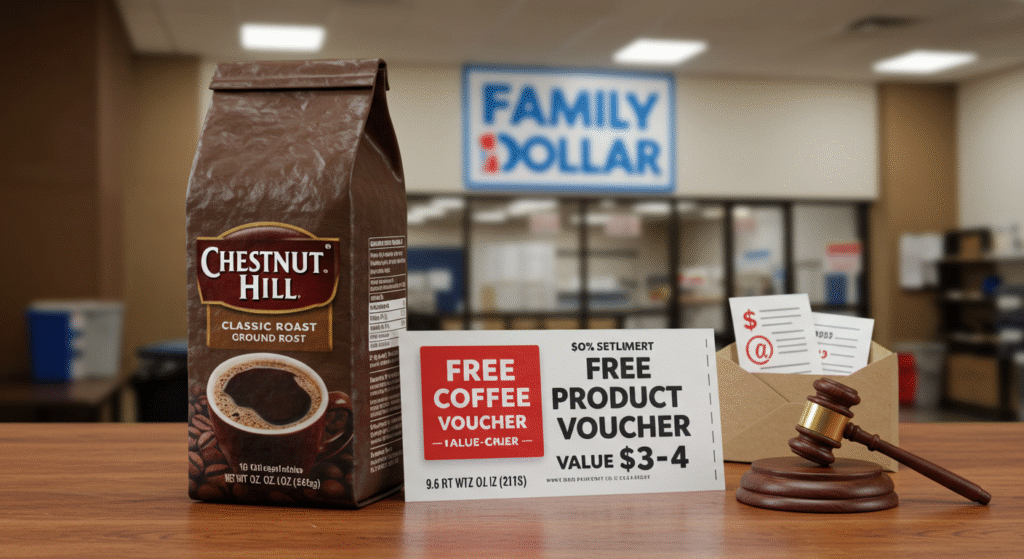
You got a free Coffee Product Voucher! It let you pick up one 9.6-ounce bag of Chestnut Hill ground coffee. That was about 40-50 cups, depending on how strong you made it.
The voucher was worth about $3-4, the price of a 9.6-ounce bag. It was like a month of free coffee. If too many people claimed, the value might have dropped a little to share the funds.
Family Dollar paid $800,000 for the settlement. This covered vouchers, lawyer fees, and other costs. You paid nothing.
Also, Family Dollar had to fix their labels. They worked with companies to test or remove cup claims. A lab checked to make sure it was right. This helped future buyers.
Vouchers were sent by mail or email after the court approved. You could use them at any Family Dollar store. They usually expired six months after you got them.
I’ve seen in other cases that people liked vouchers. They were easier than small cash payments and useful.
Each household got one voucher to keep it fair. If you didn’t like Chestnut Hill, you could use it or give it away.
This was a good deal: free coffee and better labels in the future.
How to Get Your Voucher: Easy Steps
Claiming was simple and took about five minutes. You had to do it by July 21, 2025, at 11:59 p.m. Central Time. Here were the two ways:
Option 1: Online (Fastest)
- Went to www.fdcoffeesettlement.com.
- Clicked “Submit a Claim.”
- Typed your name, address, email, and phone number.
- Said you bought the coffee between January 1, 2019, and April 15, 2025. You didn’t need more details.
- Checked the box to agree.
- Sent your claim. You got an email to confirm.
Option 2: By Mail
- Got the claim form from the website or called to ask for one.
- Wrote your name, address, and other details.
- Signed the form.
- Mailed it to: Williams v. Family Dollar Settlement Administrator, P.O. Box 2030, Portland, OR 97208-2030.
- Made sure it was postmarked by July 21, 2025.
You could check your claim status on the website using your email.
Had a problem? You called 1-833-###-#### or emailed the settlement team.
I always said online was best. It was fast and didn’t get lost in the mail.
After you claimed, you waited about 60-90 days after court approval for your voucher.
Reminder: One voucher per household. You used your current address.
Important Dates to Know
Timing mattered. Here were the key dates:
- Claim Deadline: July 21, 2025 (online by 11:59 p.m. CT or mail postmarked by this date).
- Opt-Out or Disagree Deadline: July 14, 2025 (if you wanted to leave or didn’t like the settlement).
- Final Court Hearing: July 21, 2025, at 1:00 p.m. in an Alabama court.
- Voucher Sent: About 60 days after approval.
- Voucher Expired: Six months after you got it.
If you missed the claim deadline, you got no voucher and couldn’t sue Family Dollar about this later.
The hearing decided if the settlement was final. If approved, vouchers went out. Appeals might have delayed things.
You should have set a reminder for July 20 so you didn’t forget.
Most people met deadlines, but some waited too long. It was important not to be late.
What If You Did Nothing?
This settlement affected you. Here’s what happened:
- Did Nothing: You got no voucher and couldn’t sue Family Dollar about this later.
- Claimed: You got a voucher, and the case ended for you.
- Opted Out: You could sue Family Dollar on your own but got no voucher. The opt-out deadline was July 14, 2025.
- Disagreed: You could tell the court if you didn’t like the settlement. You only got a voucher if you claimed.
Most people claimed because it was free and easy.
Your information was safe. It was only shared with the court and settlement team.
You could see the FAQ on the settlement website for more.
Most people claimed because it was free and easy. It was your right.
Common Questions
People asked these a lot:
Did I need a receipt?
No, you just said you bought the coffee.
How many vouchers?
One per household.
What if I moved?
You used your current address.
Was this a scam?
No, it was approved by a court. The website was safe.
Could I get money instead?
No, only a voucher.
What if too many people claimed?
The voucher value might have dropped a bit, but it was still free.
More answers were at www.fdcoffeesettlement.com/FAQ.
My experience showed clear answers made people trust the process.
Why These Settlements Were Important
Lawsuits like this protected people. Family Dollar had over 8,000 stores. One wrong label affected many customers.
For shoppers: You checked labels. If they were wrong, you spoke up. These lawsuits made things better.
For companies: They had to be honest. They tested what they claimed. This settlement’s label changes showed it worked.
Food label problems were common, like with cereal or coffee. In 2024-2025, many lawsuits were about portion sizes. This case was part of that.
As Orland Howell, I’ve seen how these cases helped people. A simple buy could lead to fairness and teach you your rights.
In the future, better labels meant better shopping for everyone.
Tips for Smart Shopping
Here’s what to do after this settlement:
- Check how many cups a bag makes. Divide ounces by cups.
- Make a pot of coffee and count the cups.
- Look at reviews to compare brands.
- Keep receipts for big buys.
- Check sites like TopClassActions for other settlements.
Coffee fans could try new roasts. Chestnut Hill was cheap, and its labels were better after this.
You saved money by buying in bulk, but you checked the claims.
These tips came from my years of writing about consumer cases to help you shop smarter.
Conclusion: Did You Get Your Free Coffee?
The Family Dollar coffee settlement gave you a free Chestnut Hill coffee voucher. If you bought their coffee from 2019 to 2025, you had to claim by July 21, 2025, at www.fdcoffeesettlement.com. This showed why standing up for honest labels mattered. It worked. Have questions? Comment below or contact me. As Orland Howell, I’m here to help with settlements.
Disclaimer: This article is for informational purposes only and does not constitute legal advice. All information is based on public court documents related to the Williams v. Family Dollar Stores, Inc. settlement as of September 28, 2025. For official details, including eligibility, claim processes, and deadlines, please visit www.fdcoffeesettlement.com or contact the settlement administrator. Orland Howell and the publisher are not responsible for any actions taken based on this article. No misleading or false information is intended. Always consult a legal professional for advice specific to your situation.
Explore More:
Erin Andrews Lawsuit: The $55 Million Peeping Tom Case and What It Means for Privacy
Everything Breaks TCPA Class Action Settlement: how to claim $36–$144 (deadline & steps)

Orland Howell is a seasoned content writer with four years of deep expertise in crafting compelling and informative content about lawsuit settlements. With a keen understanding of legal nuances and a talent for translating complex topics into clear, engaging narratives, Orland helps law firms, legal professionals, and clients communicate effectively. His work spans blog posts, articles, whitepapers, and website content, all designed to educate, inform, and drive results. Passionate about empowering audiences with knowledge, Orland combines precision, creativity, and industry insight to deliver content that resonates and builds trust.
